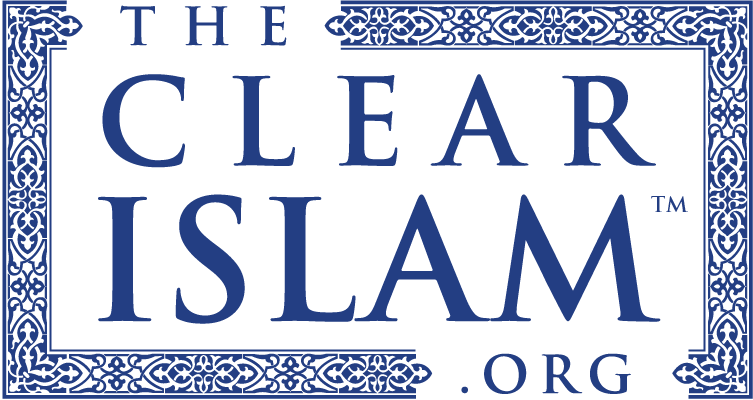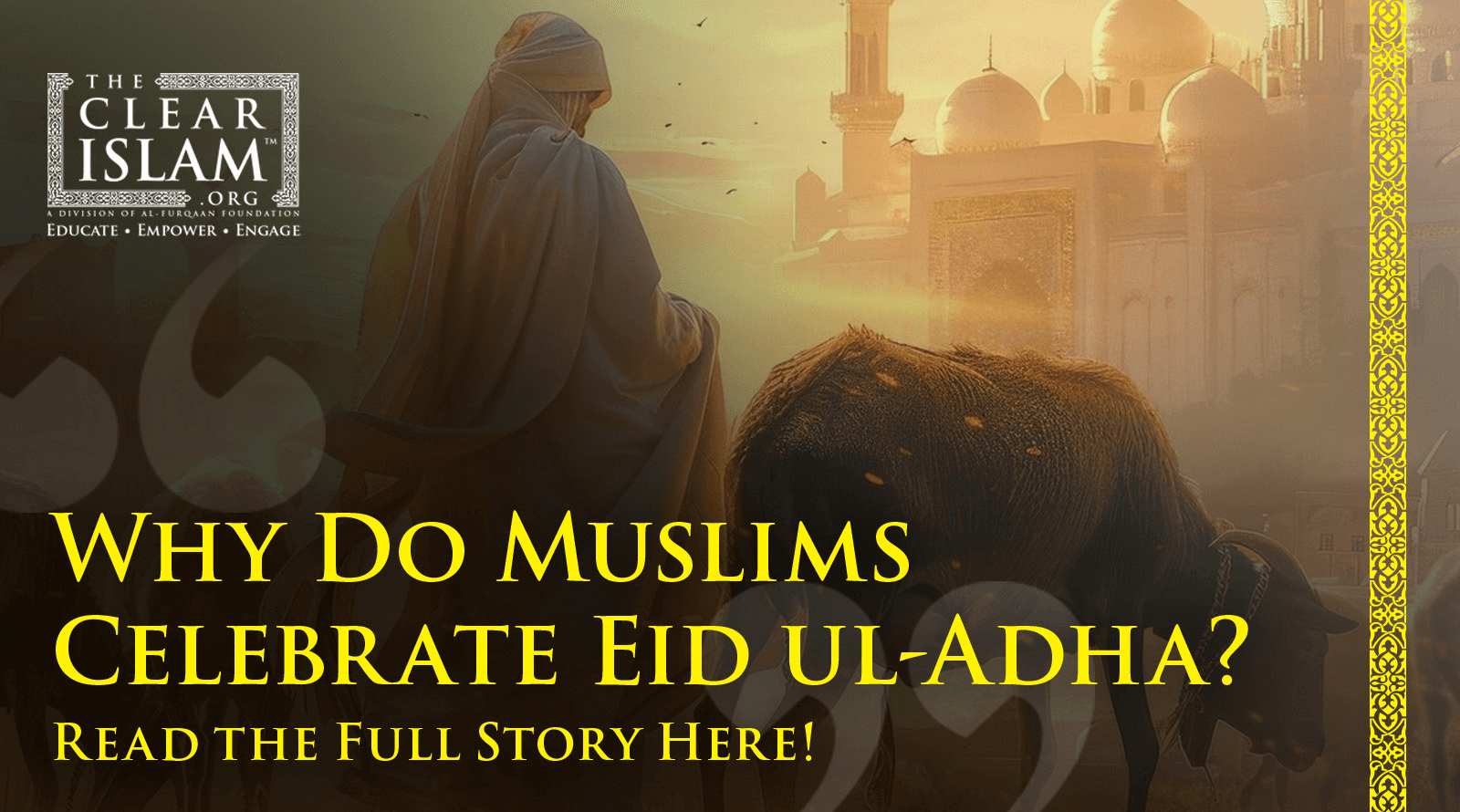Why Do Muslims Celebrate Eid ul-Adha? Read the Full Story Here!
In Islam, there are two major Eid celebrations that Muslims worldwide participate in. The first one is Eid ul-Fitr, and this is celebrated after the conclusion of the month of Ramadhan. The second one is Eid ul-Adha, which takes place in the blessed month of Dhul Hijjah. Just like Eid ul-Fitr, this joyous occasion is significant. It contains many important lessons that can be implemented and reflected upon to become better believers in our faith. Understanding the history behind Eid ul-Adha and the reasons for certain practices, whether on pilgrimage or not, allows us to develop a deep respect and appreciation for our peaceful religion. In the following article, we will delve into the origins, significance, and traditions of Eid ul-Adha. This way, you will be well-prepared to participate in such a blessed Eid.
What is the History Behind Eid ul-Adha?
The significance of Eid ul-Adha dates back to the time of Prophet Abraham (Ibrahim in Arabic), the third prophet and messenger of God. According to Islamic tradition, God commanded Prophet Ibrahim in a dream to sacrifice his beloved son, Ishmael (Ismail in Islam). Known for his resilience and unwavering faith in his Creator, Prophet Ibrahim immediately obeyed. Likewise, his son Ishmael was also willing to assist his father in fulfilling this divine command.
Prophet Ibrahim took his son to a specific place where he instructed him to lay his neck over a piece of stone. Although he was a prophet of God, he still had the heart of a father and could not bear to witness the sacrifice. He tied a cloth around his eyes, and just as Prophet Ibrahim was about to make a sacrifice, God intervened and provided a ram for him to sacrifice instead. When Prophet Ibrahim removed the cloth, he was surprised to see that he had sacrificed a ram instead, and that his son was still alive, standing before him.
This particular sacrifice is commemorated by Muslims during Eid ul-Adha as an obligatory action, and this symbolizes unwavering faith, the sacrifices we sometimes have to make to please God, and complete submission to God’s will that He knows best.
When is Eid ul-Adha Celebrated?
This celebration occurs annually over approximately four days, beginning on the 8th of Dhul Hijjah and ending on the 12th of Dhul Hijjah. These dates follow the lunar calendar, which Islam observes, but the dates vary each year according to the Gregorian calendar. The celebration coincides with the annual Hajj pilgrimage, a spiritual journey to Mecca that every Muslim is obligated to undertake at least once in their lifetime, provided they have the physical and financial means.
What Are Some Common Practices Muslims Do on Eid ul-Adha?
One of the central practices observed on this day is called qurbani, or the sacrifice of an animal. This act compels us to remember Prophet Ibrahim’s willingness to sacrifice his son in obedience to the command of his Lord. Typically, Muslims will slaughter a sheep, goat, cow, or camel. Once the animal is properly sacrificed the meat is divided into three parts:
- The first part is distributed amongst the poor and the needy.
- The second part is given to family members and friends.
- The last part is kept for the family.
Distributing the meat equally among these specific groups is significant, as it emphasizes the importance of charity and generosity in Islam.
The second obligatory practice on this day is attending the Eid ul-Adha prayers, similar to those on Eid ul-Fitr. This prayer, known as Salaat al-Eid, is held in large congregations at mosques. All mosques are open and welcoming to anyone who wishes to pray. The prayers are followed by a sermon (khutbah), a tradition established by the Prophet Muhammad (PBUH).
The final tradition involves dressing in your best clothing, apply fragrance, and visit close family and friends. It is customary for brothers to hug brothers and sisters to hug sisters while exchanging the greeting, ‘Eid Mubarak.’ Festive meals are shared, and many people beautifully decorate their homes in preparation for this occasion. In some cultures, elders also give money (Eidi) to the younger ones as a gesture of love.
Does Eid ul-Adha Look the Same Around the World?
Eid ul-Adha is celebrated globally, and what makes these celebrations unique is that, while the core practices remain the same, each country, community, and family has its own way of celebrating. In some countries, communities unite to organize grand feasts where everyone in the neighborhood gathers to eat together. In other cultures, people sing, dance, and showcase cultural performances.
In countries with significant Muslim populations, such as Indonesia, Pakistan, and Turkey, Eid ul-Adha is observed as a public holiday, with families spending time together at home or going out to celebrate. In non-Muslim majority countries, Muslims gather in mosques and also go out to celebrate, often inviting their non-Muslim or newly reverted friends to ensure they have the best Eid experience.
But I’m a Non-Muslim, How Can I Be Respectful of Eid ul-Adha?
This is a common question asked by non-Muslims, and we have an answer for you! There are many ways you can show respect to your Muslim brothers and sisters on the day of Eid ul-Adha. First, don’t hesitate to ask questions! Muslims are always warm and welcoming to any genuine inquiries a non-Muslim may have about their practices. Second, if you have Muslim friends or colleagues, brighten their day by saying ‘Eid Mubarak.’ By doing so, you extend your good wishes on a day that is deeply significant and blessed for them.
Third, if you are ever invited to attend an Eid ul-Adha celebration, be sure to attend if you can! Remember, adorn yourself in new clothing, apply fragrance, and this is a wonderful opportunity for you to experience firsthand the glad tidings of this day.
Lastly, reading literature on Eid ul-Adha is also a plus! Sometimes, books give us more in-depth explanations and research on significant events of Islam.
Remember to also be respectful of these sacred gatherings – be sure to wear modest garments if you wish to attend a mosque, and stay away from bringing any prohibited food/beverage items to a gathering.
Will You Turn Your Back on Helping New Muslims This Eid ul-Adha?
Now that you’ve learned about the importance and significance of Eid ul-Adha, it’s crucial to reflect on the role we all play in supporting and educating others about this celebration. The Clear Islam is dedicated to providing New Muslim Welcome Packages to our newly reverted brothers and sisters, ensuring they feel supported by the Muslim community. However, we cannot do this alone. Your generous donations are urgently needed to sustain this vital work and to organize Dawah tables and events that enlighten non-Muslims about Eid ul-Adha.
Imagine the impact of your contribution: a newly reverted Muslim feels welcomed and informed, or a non-Muslim gains a deeper understanding of Islam. Without your help, these essential efforts will falter. Don’t turn a blind eye to this opportunity. Donate now and become a part of compassion and community! Your support is not just a gift; it is a responsibility.
Conclusion
Eid ul-Adha is a celebration that emphasizes the importance of giving, trust in God, and sacrifice. By understanding its history and the practices associated with it, you can gain a deeper respect for the values this event teaches. Engaging with the Muslim community, asking questions, and participating in healthy interfaith dialogues can foster greater understanding and respect in our interconnected world. Whether you say ‘Eid Mubarak’ or take part in an Eid feast, you are contributing to a more united global community (Ummah).
Suggested Reads:


